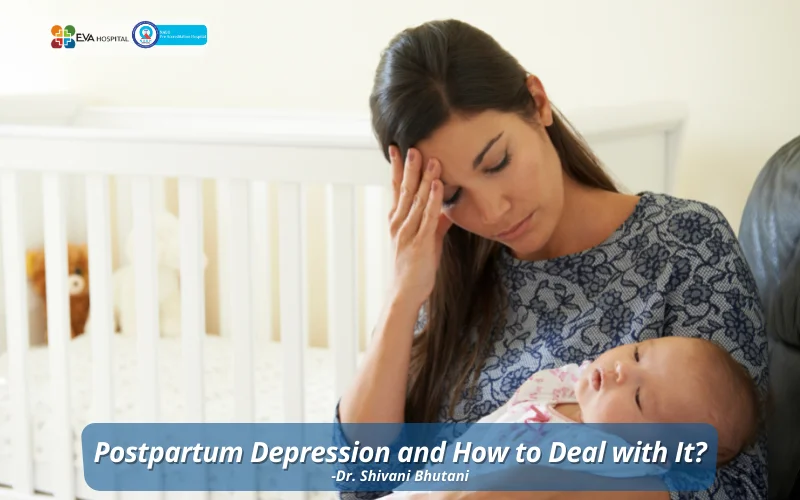[vc_row el_class=”cstm_container”][vc_column][vc_column_text]A bundle of Joy-Welcoming a New life
Young Parents bubble with joy and happiness at the thought of welcoming a new child into their family.
Postpartum Depression and Baby Blues
While it is precious and beautiful to bring a new life into this world, it has its share of challenges. Postpartum Depression is one such common and yet important issue. Since a new mother undergoes a lot of bodily changes, emotional upheavals, and societal pressures, PPD is fairly common among women.
In simple words, Postpartum depression refers to a depression that sets in after the child-birth. It is different from ‘Baby Blues’, a set of symptoms that vanishes within 3-5 days, post-delivery. If the Baby Blues continue beyond two weeks, it can be considered Postpartum Depression.
So, it is important to know and identify the difference between Baby Blues and PPD. Almost 80 % of the postpartum mothers experience Baby Blues. Typically, Baby Blues refers to short term feelings of the feeling of sadness or moodiness postpartum and includes a set of following symptoms:
- Quick mood swings- from being happy in one moment to sad in another
- Appetite changes- lack of / excessive eating
- Irritability
- Sleep Changes
- Anxiety
- Feeling like crying over little things
- A sense of restlessness
- Missing your old life
If the symptoms of Baby Blues last beyond two weeks, it is most probably a case of Postpartum depression. PPD is a complex combination of behavioral, emotional, and bodily changes in women after delivering a baby.
Also, Read: Does Stress Impact Pregnancy?
PPD generally begins within 4 weeks post-delivery. In order to distinguish it from the Baby Blues, it is significant to note its typical symptoms that include:
- Severe fatigue
- A continued feeling of emptiness and sadness
- Lack of interest in previously loved activities/things
- Sleep Issues
- Frequent Mood swings
- Lower libido
- Severe anger issues
- Feeling worthless/ hopeless
- Thoughts of harming oneself/other
- Inability to take care of oneself/baby
- Irrational fears/Panic
- Feeling Inadequate
- Difficulty bonding with baby
While the exact causes of PPD are not known, the extreme hormonal changes and some risk factors including a history of depression, severe PMS, stressful marriage or relationships, lack of social network and connection can be contributing factors.
Since PPD affects not only the mother but also the well-being of the child, father, and other family members, it is worthwhile to consult a doctor, as and when the symptoms first show up.
PPD is diagnosed by a certified doctor, who may prescribe from a number of treatments including therapy, medication, or counseling.
It is also helpful to engage in self-care during this time by exercising moderately every day, eating nutritious food, finding time to do what one likes, and communicating with the inner circle of close friends and family.
One doesn’t have to really do it all alone. There is ample support available from friends, family, and doctors alike.
When to See a Doctor for PPD?
- Recurrent depressive symptoms for more than 2 weeks
- Inability to take care of baby
- Difficulty engaging and completing routine chores
- Thoughts of harming self/ others
How to deal with Postpartum Depression?
Apart from consulting a doctor, who after due consideration would start either medication or therapy or both, there are many other little things that one can do to minimize the impact of PPD.
It includes exercising whenever possible, taking due rest, having nutritious food and supplements, taking time out for little joyful activities, participating in social events, communicating your needs and feelings, and knowing and believing that you are doing the best you can, the given circumstances.
Although it may seem daunting and scary, PPD is actually treatable. All one needs to do is to be aware, catch the symptoms early and go in for timely consultation with the doctor.
Focus on the happy moments and the new life, and take good care of yourself too. For more details or any queries, you can reach out to us 24 X7. We are here to help!
[/vc_column_text][/vc_column][/vc_row]




